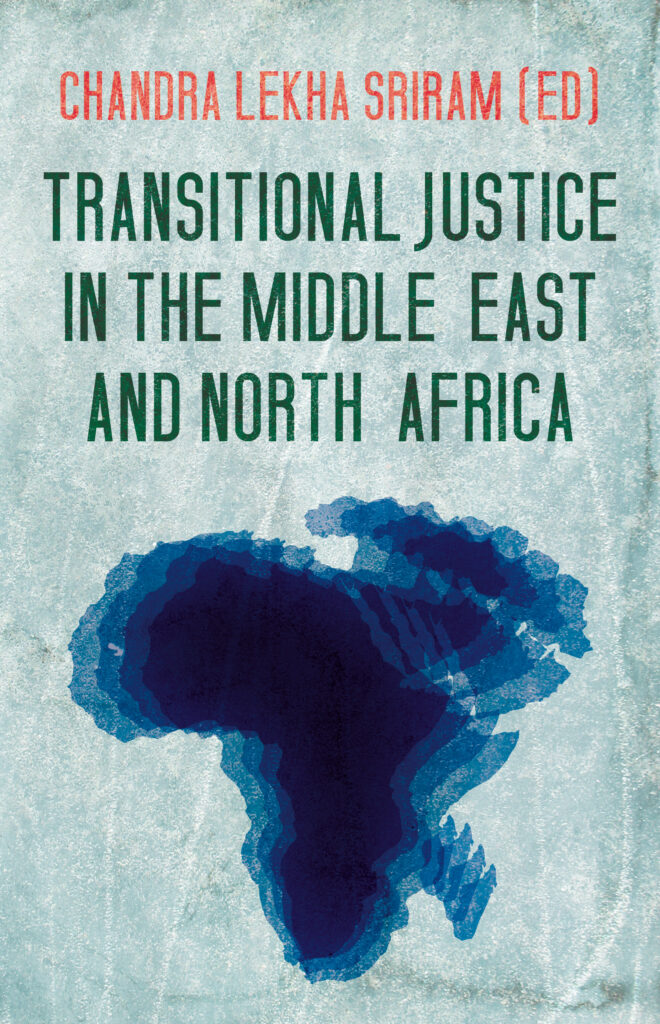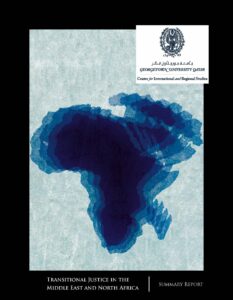Publications

Book

Chandra Lekha Sriram, ed., Transitional Justice in the Middle East (Oxford University Press/Hurst, 2017).
Following the ‘Arab Spring’ uprisings in the Middle East and North Africa, many had high hopes not only for democratization but also for transitional justice to address the myriad abuses that had taken place in the region, both during the uprisings and for decades prior to them. Despite these hopes, most of the transitions in the region have stalled, along with the possibility of transitional justice. This volume is the first to look at this process and brings together leading experts in the fields of human rights and transitional justice, and in the history, politics and justice systems of countries such as Egypt, Tunisia, Libya, Algeria, Bahrain, and Morocco. While these countries have diverse histories, political institutions, and experiences with accountability, most have experienced non-transition, stalled transition, or political manipulation of transitional justice measures, highlighting the limits of such mechanisms. These studies should inform reflection not only on the role of transitional justice in the region, but also on challenges to its operation more generally. Read more from Oxford University Press.
Summary Report

“Transitional Justice in the Middle East and North Africa,” CIRS Summary Report no. 16 (Doha, Qatar: Center for International and Regional Studies, 2017).Following the ‘Arab Spring’ uprisings in the Middle East and North Africa, many had high hopes not only for democratization but also for transitional justice to address the myriad abuses that had taken place in the region, both during the uprisings and for decades prior to them. Despite these hopes, most of the transitions in the region have stalled, along with the possibility of transitional justice. This volume is the first to look at this process and brings together leading experts in the fields of human rights and transitional justice, and in the history, politics and justice systems of countries such as Egypt, Tunisia, Libya, Algeria, Bahrain and Morocco. While these countries have diverse histories, political institutions, and experiences with accountability, most have experienced non-transition, stalled transition, or political manipulation of transitional justice measures, highlighting the limits of such mechanisms. These studies should inform reflection not only on the role of transitional justice in the region, but also on challenges to its operation more generally.